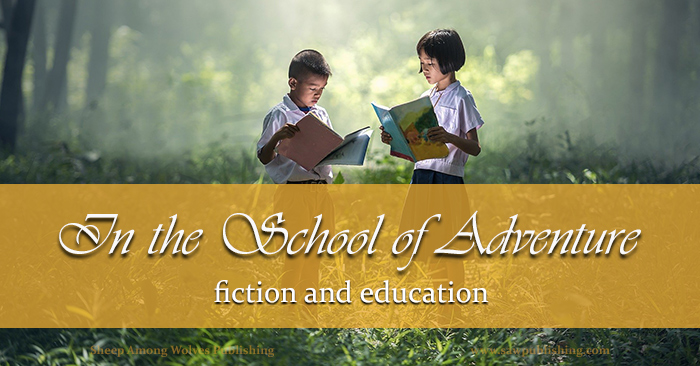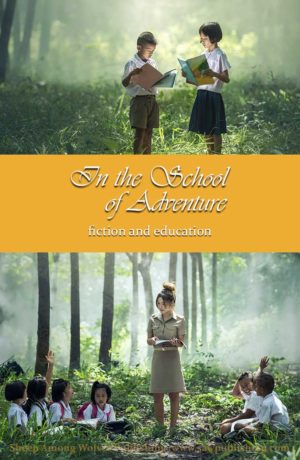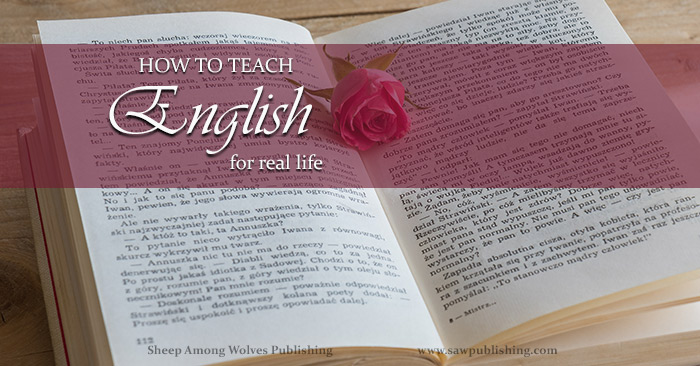In the School of Adventure: Fiction and Education
 “Literature is a luxury; fiction is a necessity.” That was G.K. Chesterton’s opinion. We can argue about the overlapping boundaries of the two words. We can question the literal veracity of the statement itself. But at the end of the day, we are forced to admit that it does capture a certain truth. Fiction is not a luxury.
“Literature is a luxury; fiction is a necessity.” That was G.K. Chesterton’s opinion. We can argue about the overlapping boundaries of the two words. We can question the literal veracity of the statement itself. But at the end of the day, we are forced to admit that it does capture a certain truth. Fiction is not a luxury.
Or if it is a luxury, it’s something more than a luxury, as well.
Today we’re going to take a look at the interwoven relationship between fiction and education—the real and vital role that stories (and storybooks) play in the process of learning.
 Precept vs. Experience
Precept vs. Experience
It is a well-established fact that the things we actually experience impact us at a much deeper level than the things we are only told about.
Thus, education that is based on experience is likely to be more easily assimilated, and more enduringly retained, than education based solely on precept.
Hence the enthusiasm with which we still look back to our elementary field trips! Hence the vivid memories we still retain of our high school science experiments. Hence the old, proverbial superiority of “showing” over “telling.”
What About Fiction?
On the surface this sounds as if it would put fiction, when viewed from an educational perspective, on the “precept-based” plane. After all, fiction is just words—words you read, or words you listen to—but in either case, words. Words, not experience.
The question I am revolving is, does fiction actually count as precept—or as an indirect form of experience?
Why does fiction have such a power over readers of all ages? Is it not because it submerges us in an experience? Let that experience be what it will—let it be an epic quest, or a ludicrous comedy, or a mere infant’s tale—great fiction makes us a part of the writer’s adventure. And in this fact lies, I believe, at least one of the secrets to the educational power of fiction.
Beyond the Possible
We, as human beings, are exceedingly limited creatures. We can exist in but one time. We can exist in but one place. Our lives are comparatively short, and distinctly fragile.
There are only so many experiences we can actually take!
Nearly freezing through a stranded winter at the south pole, for instance, is an experience out of the reach of all but Shackleton and his privileged few—regardless of it’s experiential and educational advantages. So, likewise, is a firsthand trip on the Second Crusade. Or an afternoon jaunt to Victoria Falls. (Once again, an elite minority excepted.)
These are experiences most of us cannot have in our own persons—especially while those persons are still in their grade school years.
But with fiction? Yes, with fiction, can even the sky be called the limit? Fiction offers the experience beyond the possible—the experience every teacher would give to every student if four little objections called time, space, safety, and expense, could be entirely done away with!
Fiction and Education: Embracing the Experience
Have you ever caught yourself feeling guilty for reading fiction? Maybe for reading fiction aloud to your students, when you should have been grinding out multiplication tables? Maybe for letting them read it themselves, when they should have been studying for that history quiz?
Fiction is one of the greatest educators you will every have the privilege to work with—one of the most valuable life-tools you will ever place in your student’s hands. Fiction and education belong together. Because fiction is experience. And experience is education—plain and simple.

You can’t expect an author to give a perfectly unprejudiced verdict on the case for literature, can you? Nevertheless, here are my personal top three arguments on the case for literature as a school subject.

Two days isn’t very long to soak in a panorama of historic events. Will our heroine’s whole attention be absorbed by the vivid scene, or will she find time to delve deeper and discover the motives which give the pageant its soul?

For the past five years, SAW Publishing has been compiling Timeless Tips from the generations of homemakers and educators who have gone before us. Explore the entire Timeless Tips collection with the new, complete index.

